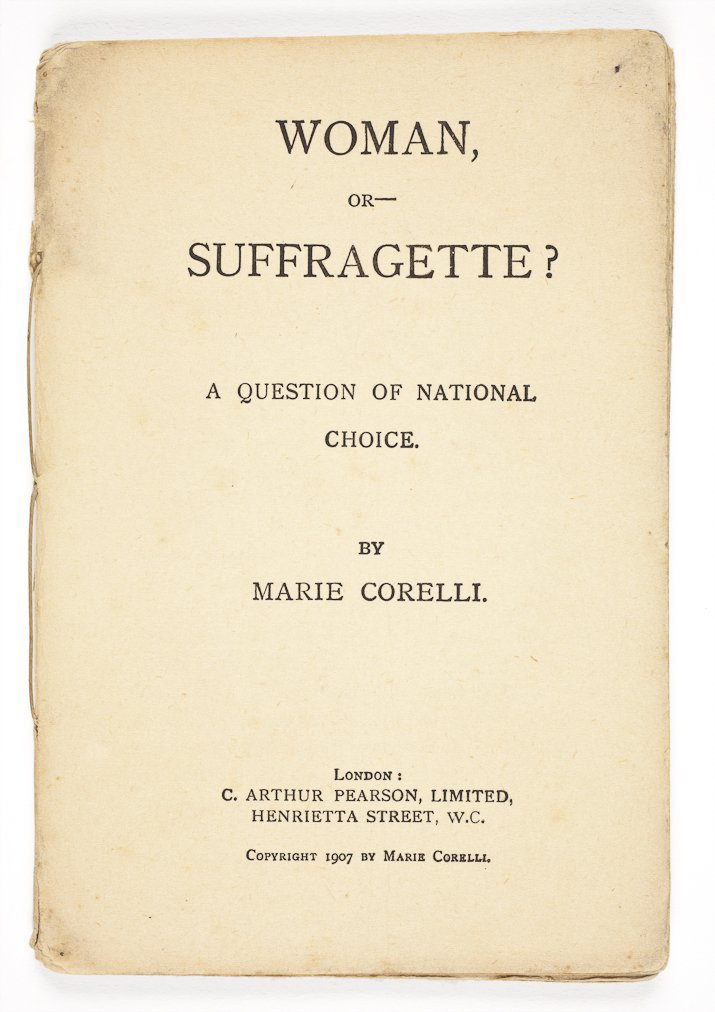
The oldest text displayed was The Birth of Mankinde (1604), or to give it its full title:
The birth of mankinde, otherwise named The womans booke. Set foorth in English by Thomas Raynalde phisition, and by him corrected, and augmented. Whose contents ye'e may reade in the table following: but most plainely in the prologue
This was the first book on pregnancy and childbirth to be printed in English. The text is based on a translation by Richard Jonas of a Latin edition of The Rose Garden, originally by the German physician Eucharius Rösslin from 1513.
The SBT's volume was owned by Mary Mitchell and contains on the front board a written note dated 1785-1803, recording her marriage and the birth and baptism of her children. One annotation in early 19th-century manuscript ink notes on page O7r[1] "this is dangerous." It is unclear if that note was also by Mitchell.
The Trust also displayed the autograph book kept by Mrs Mary Rose. In 1900 Mary Rose was appointed joint custodian with her husband of Shakespeare's Birthplace. She served as the principal custodian from her husband’s death in 1910 until her own death in 1921. Favoured visitors were invited to sign the book: signatories include novelist Marie Corelli (1908), Shakespeare scholar and suffragette Charlotte Stopes and her daughter Marie Stopes (1913), and Shakespearian actress and lecturer Ellen Terry (1916).

Charlotte Carmichael Stopes, a noted member of the suffrage movement, wrote The Sphere of ‘Man’ in Relation to that of ‘Woman’ in the Constitution (published in 1907), which was also on display at the event. Like some of Charlotte Carmichael Stopes’s other works, The Sphere of ‘Man’ addressed the treatment of women and remarked that, in British legal discourse: “‘man’ always includes ‘woman’ when there is a penalty to be incurred but never includes ‘woman’ when there is a privilege to be conferred.” The work was on sale as informational literature at suffragette rallies and widely reviewed in the press. It also may have helped establish Stopes's credentials as an expert on gender and the British constitution.
‘man’ always includes ‘woman’ when there is a penalty to be incurred but never includes ‘woman’ when there is a privilege to be conferred.
— Stopes, 'The Sphere of Man'

In counterpoint to Stopes’s views, the SBT also presented the anti-suffrage campaigner
and Stratford resident Marie Corelli, exhibiting her pamphlet Woman or Suffragette: a question of natural choice. The title aptly
summarised her opinion on the issue: women must choose between womanhood and
politics. She argued that “Woman was and is destined to make voters
rather than be one of them” and that suffrage would deprive women of their
‘real’ power over men – love. She opposed 'New Women' and the rational
dress movement, and campaigned for the Anti-Suffrage League. Corelli’s
presence in the town was further recognised in the inclusion in the exhibit of
a biography, Marie Corelli: Shakespeare's Champion, and the Memoirs
of Marie Corelli. Both were published in 1930, after Corelli’s
death, by her childhood friend Bertha Vyver, with whom Corelli
appears to have lived most of her life and who first suggested
Corelli move to Stratford-upon-Avon.

In February 1918, the Representation of the People Act came into effect, extending suffrage in Britain to all men aged 21 and over, whether or not they owned property, and to women aged 30 and over who owned property with a rateable value above £5, or whose husbands did, or who had attended certain British universities. Charlotte Stopes continued to research, write, and publish until very shortly before her death, and she remained active in demonstrating for extension of the suffrage to all women. She saw this achieved in 1928 when The Representation of the People (Equal Franchise) Act gave all women over 21 the right to vote, regardless of property ownership, finally placing women’s suffrage on a par with men’s.

[1] 'O7r' means the recto of the 7th leaf of the O gathering (preceded by gatherings A to N). A gathering is a folded printed sheet of leaves prior to binding; this is referred to as a signature after binding. 'Recto' is the right-hand page of an open book, or the front of a loose document.
